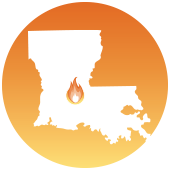Over decades Louisiana has developed a Judicial Hellholes reputation for plaintiff-friendly venue shopping, permissive judges, double-dipping asbestos lawsuits and trust claims, the highest jury-trial threshold in the nation, easily abused consumer protection laws and excessive jury verdicts.
But with the long-running scandal of plaintiffs’ bar corruption and greed that was the BP oil spill litigation largely behind it, and with a lifelong trial lawyer-turned governor failing in 2016 to advance in the legislature any of his liability-expanding agenda, many observers of Louisiana’s storied litigation environment thought that perhaps this year’s Judicial Hellholes report might recognize the relative calm by moving the state to its less severe Watch List. Then Governor John Bel Edwards announced his administration’s intentions to muscle in on various parish lawsuits and pursue multibillion-dollar litigation over coastal erosion against the state’s (and the nation’s) critical oil and gas industry.
The governor has unilaterally and, according to some critics, unlawfully sought to hire some of the state’s wealthiest plaintiffs’ lawyers to run the energy industry-targeting litigation. That these same private-sector lawyers also contributed generously to the governor’s campaign smells of the same pay-to-play cronyism that brought down the state’s previous attorney general. In any case, environmental experts say the Army Corps of Engineers’ decades-old levee system, not oil and gas production, has been most to blame for the Pelican State’s steady loss of wetlands. But no one ever got rich suing the Army Corps of Engineers.





